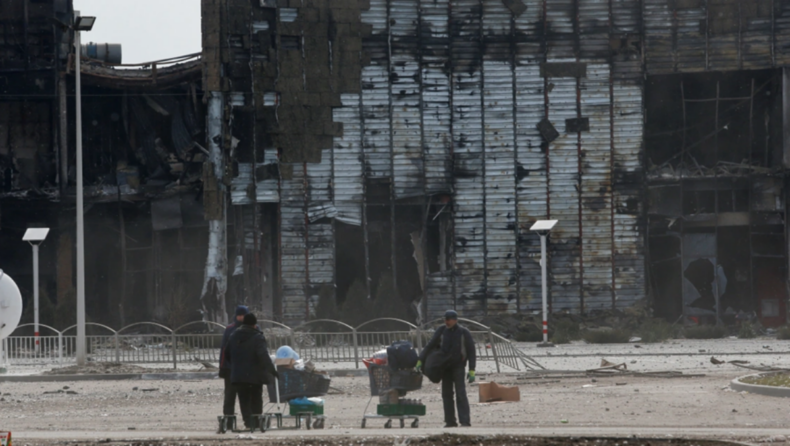On Tuesday, two “super-powerful bombs” exploded in Mariupol in the presence of Ukrainian authorities attempting to rescue civilians from the strategic but besieged southern part of Ukraine.
According to human rights watch more than 100,000 people are trapped in Mariupol. This wake of destruction has been described as a “freezing hellscape riddled with destroyed buildings, dead bodies”.
With the ruthless, restless, and relentless advancement of Russian troops advancement, fortress Kyiv hunkered down in a curfew as it holds breath.
Ukrainian leader Volodymyr Zelenskyy said all issues will be put forward if President Putin agreed on direct talks in any format to end the war, talks were also said to include Crimea and Donbas region.
President Zelensky in an interview with the Ukraine regional media outlet Suspilne said “I believe that without this meeting it is impossible to fully understand what they are ready for to stop the war,”.
But with openness to talk President Zelensky also warned his country would be “destroyed” before it surrenders” and in return Kremlin expressed its desire to see efforts for negotiations with Kyiv to be “more active and substantial”.
Kremlin spokesman, Dmitry Peskov during an interaction with CNN International on Tuesday stated that it would only use nuclear weapons in Ukraine if it faced an “existential threat”.
Destruction of Mariupol
The city council on Tuesday asserted Russian offense against Mariupol has turned the city into “ashes of a dead land” and as far as sight goes all you can see is debris and smoke rising from the ashes.
The port city of Mariupol has been a key fighting ground as Moscow looks to overturn its 2014 loss when Russia-backed separatists had failed to capture the city in Donetsk.
Significance of Mariupol to Russia
Geographically, Mariupol forms a land bridge between Crimea (Annexed in 2014) and the Donbas region (Separatist-held region of Ukraine).
Just 100 km away from the separatist-held region, the rebel forces had tried to capture the city in 2014 but Ukrainian forces were successful in reclaiming the region.
Then-President Petro Poroshenko had declared Mariupol as the regional capital of the oblast after Donetsk fell into rebel hands.
In 2016, it became the” city of solidarity” as termed by the United Nations High Commissioner for Refugees, welcoming internally displaced people from the contested territories.
Coastline advantage
Capturing Mariupol gives Russia a maritime advantage with the fall of Kherson, Russia has already expanded its control over the Black Sea coastline, most of which is dominated by Moscow after it seized Crimea.
Russian troops have also launched attacks on the cities along the Black Sea such as Mykolayiv and Odesa, but Ukrainian troops have been able to resist its advances so far.
In the East, much of the coastline along the Sea of Azov is also under Russian territory, baring Mariupol which is home to one of the largest ports in Ukraine.
Cities like Melitopol and Berdyansk along Azov were taken over by Russian forces just days after the invasion began.
If Mariupol falls, Russia will control the entire coastline along the sea of Azov and much of the Black Sea which can cut off Ukraine’s maritime trade. In 2014 something similar happened when it had lost a third of its Black Sea coastline, access to the Kerch Strait, and five of its seaports.
Economic importance of Mariupol
Mariupol continues to account for a fifth of Ukraine’s ferrous metal exports home to two of the largest Iron and Steel plants in Europe as Azovstal (Reportedly damaged by Russian shelling) and Ilyich.
Along with Berdyansk, it also makes up for 5% of grain exports.
Novorossiya
In 2014, President Putin invoked a term named “Novorossiya” (New Russia) while addressing the reporters.
Novorossiya is a historical term for territories considered to be part of Russia under Tsarist rule, which included large parts of southern and eastern Ukraine such as Odesa, Kharkiv, Kherson, Donetsk, and Luhansk.
Effectively controlling Mariupol will put Putin closer to the imagined Novorossiya.
Published By: JAINAM SHETH
Edited By : KRITIKA KASHYAP













